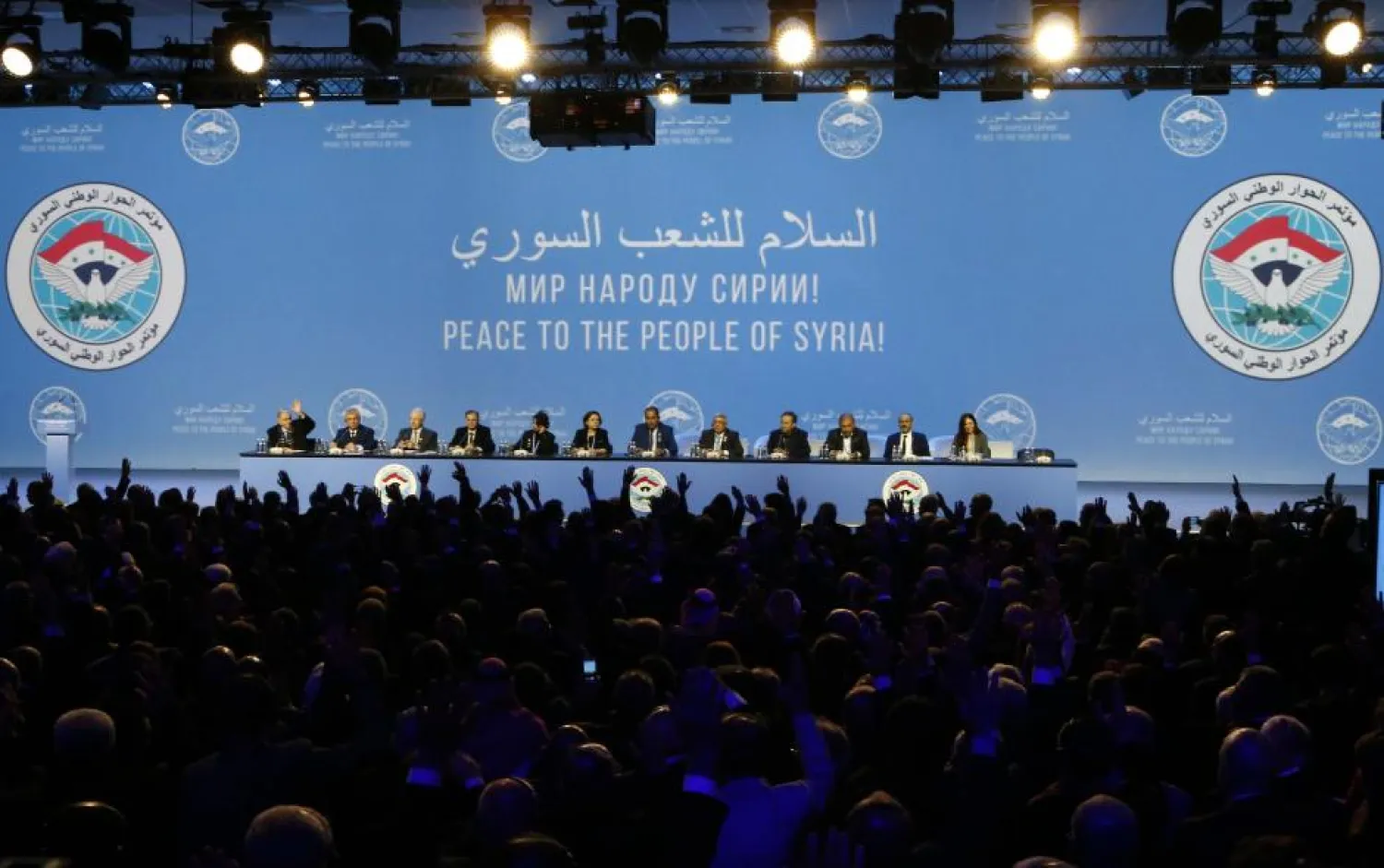The Syrian National Dialogue Congress was held in the Black Sea resort town of Sochi on Tuesday after a delay of more than two hours due to a wide range of differences between Russia and the international envoy, and another dispute between the Russian and Turkish guarantors, to which the Syrian opposition was a party.
The opening session of the conference began with a speech by Russian President Vladimir Putin, which was delivered by his foreign Minister Sergei Lavrov, in which he pointed out that conditions now are suitable to put an end to the Syrian crisis.
"We can confidently say that all the suitable circumstances to end the painful page in the history of the Syrian people are present," Lavrov said.
He described the Congress as "unique" because it brings together representatives of different Syrian social and political parties.
"There is a dire need for a comprehensive Syrian dialogue for the sake of a comprehensive deal for the Syrian crisis," he said, adding that "only the Syrian people have the right to determine their future."
A well-informed source told Asharq Al-Awsat that UN Syria envoy Staffan de Mistura had held several meetings with the Russian side ahead of the Congress, during which he was trying to obtain additional clarifications on Moscow's vision for the work of the planned constitutional committee.
The source confirmed that eventually the parties agreed on the general framework of the committee that will be formed by the United Nations.
At the same time, there were disagreements between the Russian and Turkish guarantors, which the armed Syrian opposition protested.
Ahmed Tohme of the Syrian opposition delegation stated the delegation members were surprised that the Russian side did not implement any of its promises, adding that the brutal bombing of civilians had not stopped, flags of the regime were not removed from the banners and logo of the conference, and the host country lacked diplomatic decency.
To overcome this obstacle and ensure the participation of the delegation of the armed opposition, Lavrov held two telephone conversations on Tuesday morning with his Turkish counterpart Mevlut Cavusoglu. The ministers discussed a number of practical issues related to the Congress.
However, the opposition delegation announced its withdrawal from the conference and left Sochi after the phone conversations turned out to be unfruitful.
With the absence of major Syrian opposition factions, organizers launched the opening session during which Lavrov delivered a speech calling on the UN to play a leading role in any political settlement.
He said: “We can confidently say that all the suitable circumstances to end the painful page in the history of the Syrian people are present."
Lavrov said that Moscow had exerted an effort for the conference to represent more Syrians, reiterating that “only the Syrian people have the right to determine their future.”
At the beginning of the opening session, the conference's presidential council was formed and it was clear that it included names that were previously agreed upon and not elected or nominated during the Congress.
The participants then moved to a closed session to discuss the agenda of the conference, specifically the election of a committee that will draft a new constitution as announced.
A participant, who preferred not to be named, said that the session did not actually witness any vote as 158 figures were appointed and a constitutional committee will later be elected.
"We will have a new constitution and we will start a political process even if it takes more time than expected," said Randa Kassis, head of the Astana platform of the Syrian opposition. She lamented that the regime does not even want to begin with the process.
"How can we embark on a political process without a base? They want to take us back to 2010," she said.
But MP Ahmad al-Kuzbari, a deputy for Baath party, said that the task of such a committee is to discuss the current constitution rather than writing a new one.
“The members of this committee will sit together to discuss whether there are points in need of any reforms, amendments, or additions, and then they will submit these proposals to the chairmanship of the Congress,” he said.









